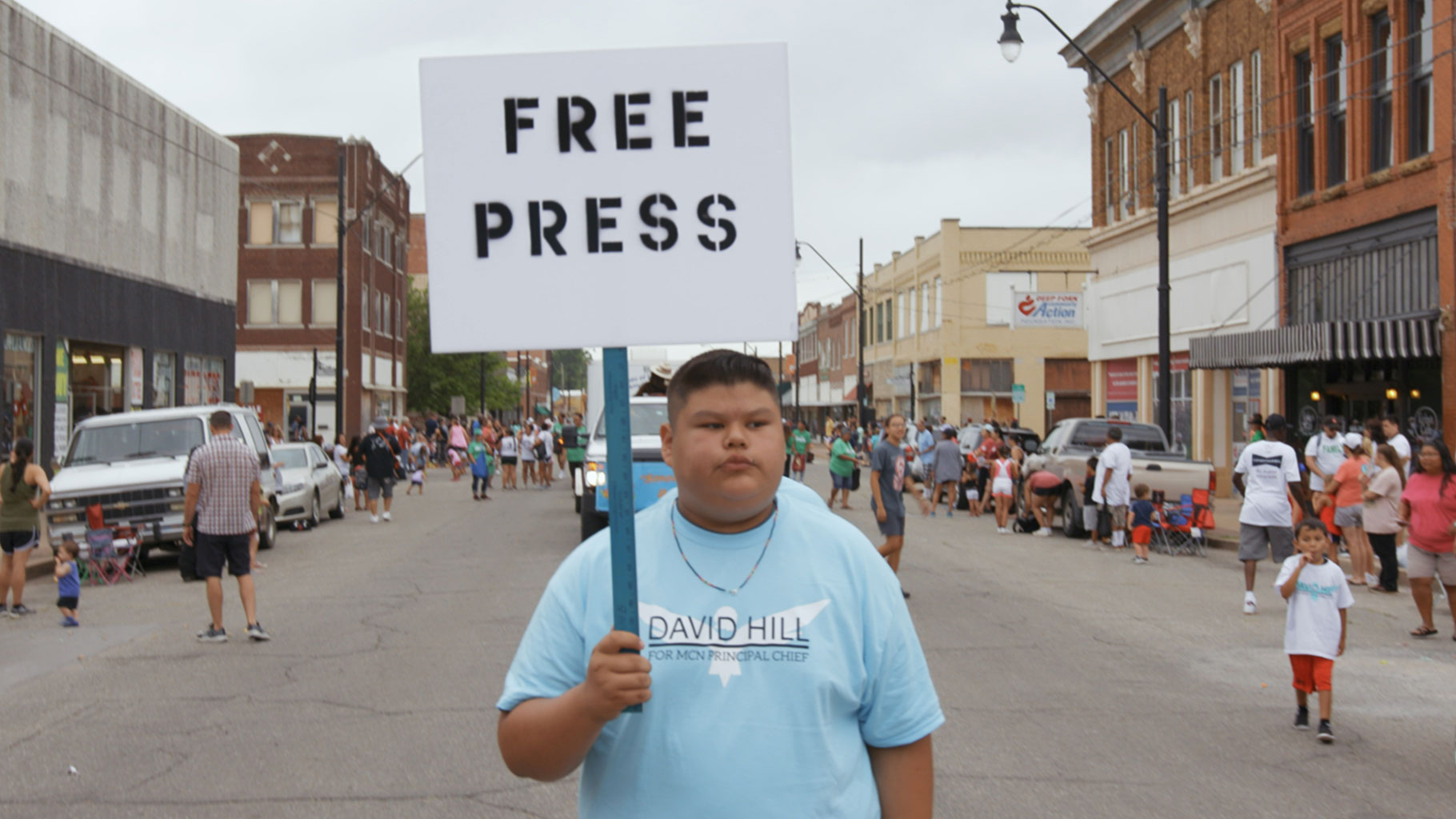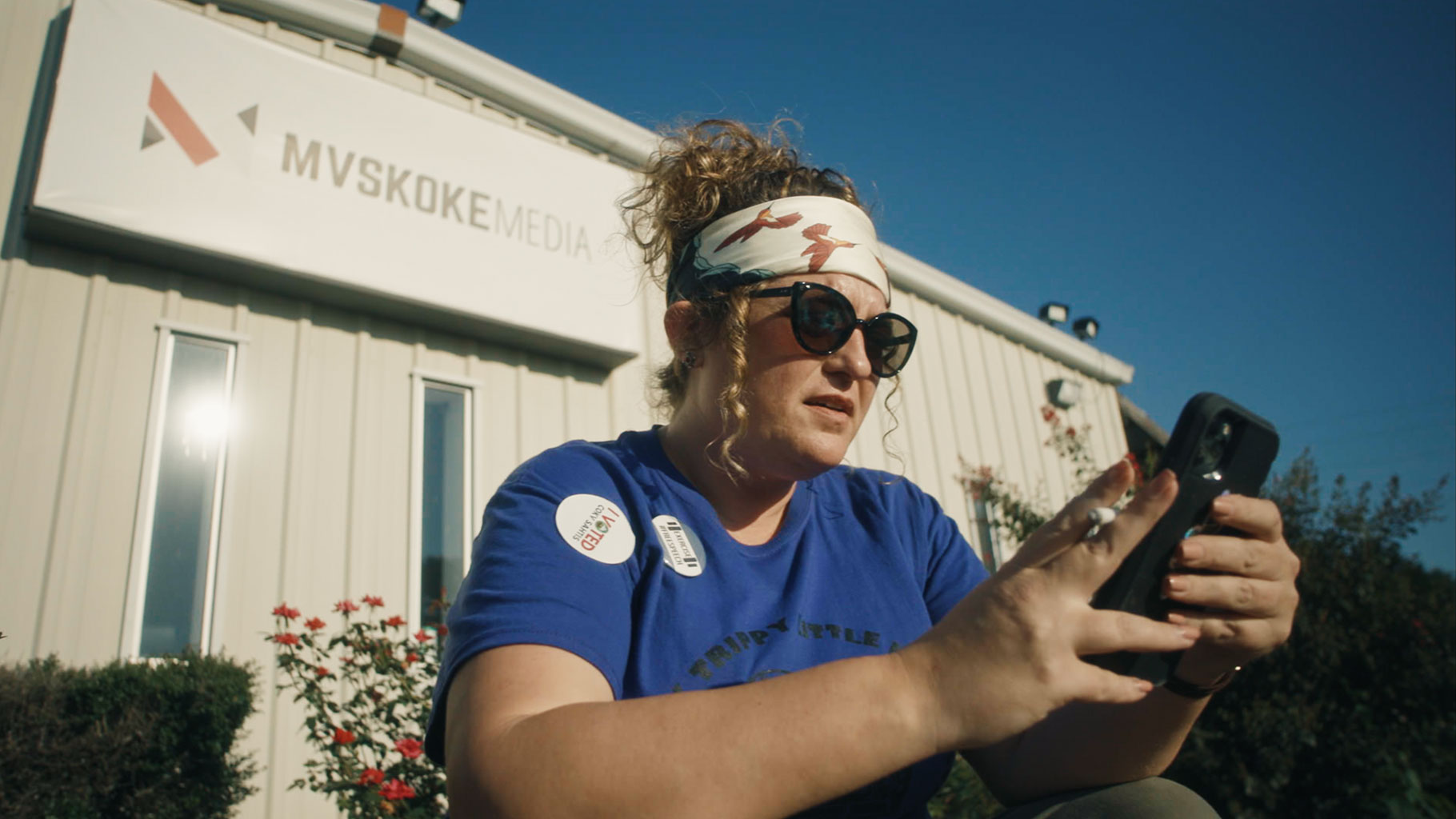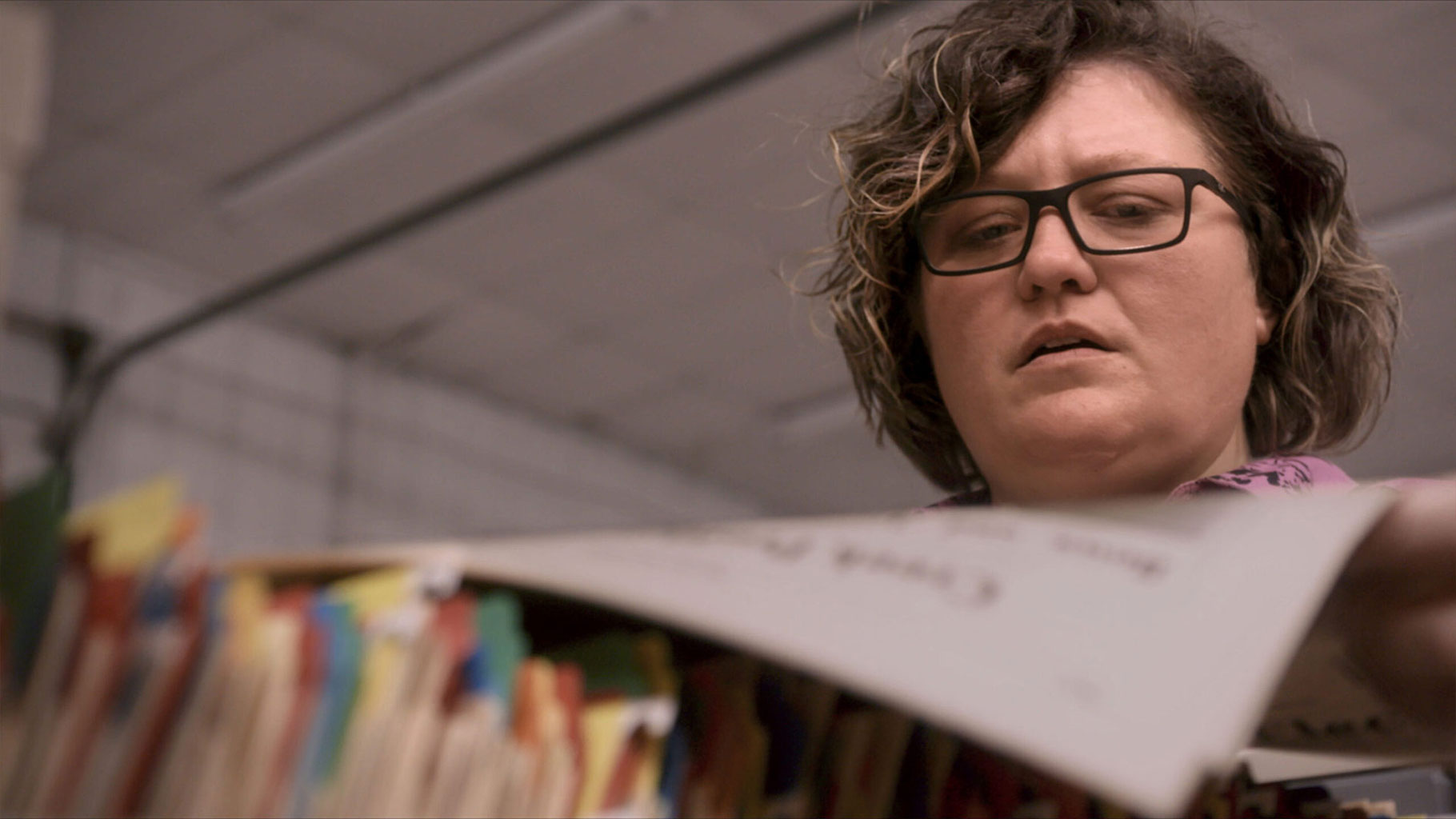Established in 1970, Mvskoke Media flourished thanks to the fact that the Muscogee Nation is one of shockingly few sovereign tribal nations with free press laws. Neglected by national or even local Oklahoma outlets, citizens turned to Mvskoke for hard-hitting coverage, including exposés of political crimes.
“I was obviously angry, as a citizen,” says Landsberry-Baker, who served as editor of Mvskoke Media for years and is now the Executive Director of the Indigenous Journalists Association, formerly known as the Native American Journalists Association. “As one of the five tribes to have this precious protection, and then to see it ripped out from under us, I was like, ‘I can’t believe this is happening; what can we do to document this?'”
Landsberry-Baker then brought documentary filmmaker Peeler onboard. With his industry experience and her knowledge of the tribe’s inner workings, they made an ideal team.
Upon the law’s repeal, ten out of 16 Mvskoke Media’s staffers quit in protest. Bad Press is about the ones who dug in, including the film’s lead protagonist, journalist Angel Ellis. For a taut, tense 98 minutes, these tenacious journalists fight for the rights of tribal citizens and their livelihoods; by uncovering layers of conspiracy and lies, the film turns into a political thriller.

Bad Press expertly builds tension scene by scene. The film harkens back to an older era of journalism — one of paper routes and non-Zoom newsrooms. It’s All The President’s Men for a new millennium. As “fucking D-Day” looms, the viewer hears moody, drudgy synths in the background. The score had political significance and succeeded in keeping viewers on edge.
“Me and Becca talked a lot about at the beginning was [that] we didn’t want to have any cliché Native stereotypes,” Peeler comments. “One of our joke rules was no drums for our soundtrack. We wanted to have this very modern sound that accentuated the idea of the film being [about] a modern Native community dealing with modern democratic issues.”
With the tribe’s National Council Speaker casting the tie-breaking vote in the election, the free press law for Muscogee Nation is abruptly revoked. The government soon assumes control of Mvskoke Media, and the journalists are forced to publish “polished turds,” according to veteran reporter Ellis. The change comes just as a critical election for Principal Chief is on the horizon — and though the race has a dizzying ten candidates, Mvskoke is muzzled just when citizens need its impartiality most. But in a gratifying twist, free press becomes a hot issue on the campaign trail.
“There were many, many times that we had no clue what was going to happen next,” says Peeler, of a project that was filmed over the course of nearly four years. “That motivated Angel to stay in the fight. Her attitude became [that] no matter how this shakes out, hopefully someone will see it, instead of it just being swept under the rug, as it has been before.”

In Ellis, Bad Press gives us a heroine to root for. She’s simultaneously vulnerable and brash; eloquent and foul-mouthed. The viewer lives their emotions through her, as she smokes to relieve tension or fans herself during an important vote. Juggling a million different obligations, she’s exhausted — yet somehow, inexhaustible. In quieter moments, she retreats to the wooded home she inherited, listening to the music of buzzing cicadas.
For Mvskoke Media, the only solution is an utterly unprecedented one: a constitutional free press amendment voted in by a majority of Muscogee Creek Nation citizens — the first of its kind for tribes. But Mvskoke finds itself in a Catch-22: citizens won’t vote for a free press amendment unless they value Mvskoke Media’s work, but Mvskoke Media can’t do their work without an amendment. Even worse, disinformation and conspiracy theories abound. Close-knit tribal communities can sometimes become “echo chambers,” says Landsberry-Baker.
“You need that vetted source of information, not just ‘My cousin told me this,'” she explains. “The tribal media outlets play such an important role in tribal sovereignty, because they are the accountability mechanism for seeing what the tribal government is doing, and they’re ultimately accountable and responsible to the citizens.”

Since Bad Press premiered at Sundance Film Festival in January 2023, Landsberry-Baker has experienced a groundswell of support. “It’s very rewarding to hear that tribal citizens from across Indian country connect with this film in such a personal way and it captures their experience, with not only the accuracy but also the humor and the diversity within our communities,” she says.
For Muscogee citizens who followed this story via the paper or social media, Bad Press encapsulates a tumultuous, pivotal moment in tribal history. The government may claim to protect citizens by suppressing Mvskoke Media. But the freethinking journalists of Mvskoke know better.
“Do you want a friend who will lie to you?” asks Ellis. “Or a friend who will tell you the truth?”
Ω






